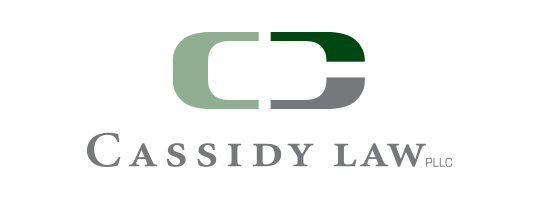Most companies get questions and complaints from employees about illegal or unethical conduct. When an employee asks these types of questions or levies a complaint, it behooves the company to conduct an internal investigation to get to the bottom of the matter. When a company conducts these investigations employees are interviewed and corporate documents are reviewed.
Business folks often worry (rightly so) that the interviewed employees may post on Facebook, Twitter, Linkedin or simply tell friends and family something along the lines of “Big news at work today – looks like my company submitted false financials in its quarterly report. More to follow, but watch our stock price tumble. How do I know? Because some lawyers interviewed me today and here is what they asked me…. And I talked with my friends at work and they were told they had to produce the following documents….” Similarly, businesses worry that before the investigation is completed an employee will take the issue to the government or to competitors. We can all appreciate that when an employee does this, a company is put in the unfortunate predicament of having to either explain itself or defend itself against allegations that may or may not be accurate or that may be taken out of context.
To remedy this many businesses, as part of their investigation procedures, have employees sign a confidentiality statement. The confidentiality statement usually says that the employee is prohibited from talking about the investigation, either within the company or outside of the company, without the company’s lawyers authorizing the disclosures.
Recently, the SEC put the kibosh on this and it made KBR change its confidentiality statement. (SEC Press Release & Settlement Documents) KBR’s confidentiality statement said:
“I understand that in order to protect the integrity of this review, I am prohibited from discussing any particulars regarding this interview and the subject matter discussed during the interview, without the prior authorization of the Law Department. I understand that the unauthorized disclosure of information may be grounds for disciplinary action up to and including termination of employment.”
Now, the SEC said that is does not know of any instance when KBR prevented an employee from telling the SEC, Congress, the Department of Justice or other government entities about possible security law violations. One wonders if an employee went to the KBR lawyers and said, “I am really concerned about possible security law violations and I am also concerned that KBR is not going to remedy the situation. So, I want to go tell the SEC, Congress, the Justice Department and my Facebook friends.” What would the lawyer say? Would the lawyer tell the employee, “You tell the government about this, you are fired? Would the lawyer tell the employee, “Tell the government just don’t tell your Facebook friends.” Or would the lawyer, who is obligated to represent KBR, that is to make sure KBR follows the law, ask, “Why are you worried that KBR may not remedy this situation?” And then, would the lawyer upon learning of the employee’s concerns – turn the investigation toward the issues the employee raised about possible cover up and retaliation or inaction in order to make sure KBR was acting legally?
It is of no moment to the SEC what KBR lawyers or any company’s lawyers would do if an employee asked if it could disclose what the employee knew to the government. Rather, the SEC said that requiring employees to sign a confidentiality agreement that requires the employee to seek prior approval from KBR lawyers before going to the government about an investigation impedes employees from telling the SEC about suspected security law violations and it undermines the purpose of Dodd-Frank Wall Street Reform and Consumer Protection Act, “Whistleblower Incentives and Protection” (SEC Rule 21F-17(a)). The Director of the SEC’s Division of Enforcement said: “By requiring its employees and former employees to sign confidentiality agreements imposing pre-notification requirements before contacting the SEC, KBR potentially discouraged employees from reporting securities violations to us.”
Since the purpose of the Dodd-Frank whistleblower protections and incentives is to encourage employees to report their employer’s suspected violations to the government and since, according to the SEC, KBR’s language “potentially” discouraged employees from reporting, the SEC made KBR change the language in its confidentiality agreement. KBR had to change the language so that employees were advised that they did not need the lawyer’s OK prior to “reporting possible violations of federal law or regulation to any governmental agency or entity, including but not limited to the Department of Justice, the Securities and Exchange Commission, the Congress, and any agency Inspector General, or making other disclosures that are protected under the whistleblower provisions of federal law or regulation.”
Do other corporations need to take heed? Yes they do because the next business that the SEC catches a corporation with the type of language KBR had to change, it will probably not be settling for only $130,000. Corporations should review and edit the language in their confidentiality agreements. But, more importantly, corporate leaders must create a culture and behave in ways that let both their employees and their third parties know that raising concerns and asking questions is welcome. And, when issues are raised, those matters are taken seriously, investigated and any findings are addressed. And…when someone raises an issue, they will not be retaliated against for doing so. Treating people fairly when they are concerned or asking questions; and quickly addressing illegal or unethical practices to assure future choices are legal and ethical may be the best inoculation against a government investigation instigated by a whistleblower.

